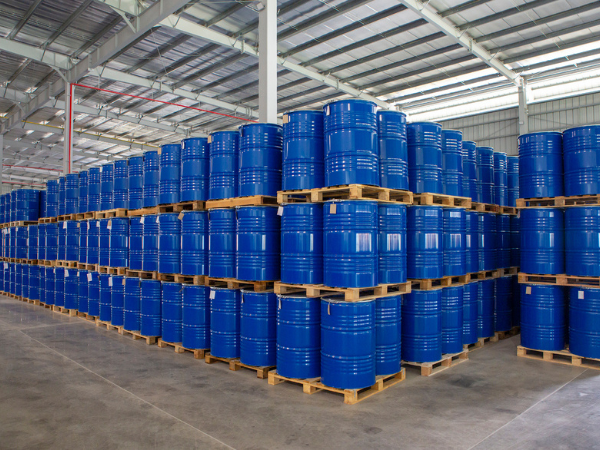Fine chemicals are the epitome of precision and purity. They are single chemicals produced in extremely limited quantities (<1,000 tonnes per year) at high costs (>$10 per kilogram). The relatively low yield, high expense nature of fine chemicals manufacturing comes courtesy of their complex synthesis routes. Plants are typically multipurpose facilities that generate fine chemicals in multistep processes. These systems must meet rigorous specifications to ensure the requisite ultrahigh purity levels.

Understanding the Importance of Yield
Purity is central to fine chemical synthesis as these materials lay the foundations for more complex, speciality chemicals tailored for specific end uses. These include active pharmaceutical ingredients (APIs), alkaloids, biocides, peptides, proteins, and more. Total global production of fine chemicals subsequently breaches $85 billion per year—despite those relatively poor cost-to-yield ratios.
Yield is a critical metric in any form of synthesis. It indicates the efficiency of processes or reactions and can elucidate the quality of a given product. Low yields may be symptomatic of process inefficiencies, including starter material impurities. High yields, meanwhile, demonstrate better resource efficiency and high-quality products. Naturally, fine chemical synthesis’s primary goal is to generate impeccable purity materials. But maximising throughput is an attractive prospect, too.
Greater system efficiency can help manufacturers reduce production costs, thus increasing their margins. It can even help to drive greater product quality. Yet, this can be a challenging process. Achieving greater yields requires thoroughly understanding reaction kinetics and implementing appropriate equipment and purification methods.
Strategies to amplify yields in fine chemicals manufacturing are manifold:
Reaction Kinetics: Delving into reaction kinetics can unlock greater yields. It’s about fine-tuning – the right temperature, the optimal pressure, and the perfect reactant concentrations.
Equipment and Purification Methods: Yield enhancement isn’t just about the reaction; it’s also about the tools of the trade. Employing high-quality raw materials, meticulous equipment maintenance, and refining purification methods all play their part.
Identification and Mitigation of Potential Challenges: The path to high yields has no hurdles. From byproduct formation to impurity generation and reaction optimisation, challenges abound. But with identification comes mitigation, and therein lies the key to maximising yield.
There is no room for error in fine chemical manufacturing. Intermediate chemicals undergo rigorous scrutiny, with purity, particle size, and moisture content under the lens. The industry can elevate its standards and unlock new yield levels with strategic implementation and vigilant monitoring.
Filter Dryers – The Unsung Heroes of Yield Enhancement
Many pieces of equipment are involved in the complex, multi-step synthesis of fine chemicals. What makes filter dryers so special?
Isolation of Solids with ANFD
The Agitated Nutsche Filter Dryers (ANFD) by PSL are integral to fine chemical manufacturing. Specifically designed for various applications from laboratory to commercial production, ANFDs are adept at isolating solids during batch processing. The process involves a combination of pressure, vacuum, and agitation within a contained vessel, facilitating the efficient separation of the solid product from its solvent.
Efficiency in Drying
Drying is as crucial as isolation in enhancing yield. Our filter dryers have a heated filter plate that directs heat energy straight into the product cake. This design ensures efficient drying, surpassing traditional methods like Büchner filtration and oven tray drying.
Adaptable Filter Dryers
Nutsche filter dryers by PSL are distinguished by their adaptability. They are suitable for various processes, including pharmaceuticals, precious metals, and natural extraction. Their design allows them to seamlessly integrate into different fine chemical manufacturing processes, making them an invaluable asset.
Combining Solid-Liquid Separation, Product Washing, and Drying in a Single Equipment
One of the key advantages of an Agitated Nutsche Filter Dryer (ANFD) is its ability to combine solid-liquid separation, product washing, and drying in a single piece of equipment. This innovative design streamlines the fine chemical manufacturing process and minimises product transfers, reducing the risk of product losses and increasing overall yield.
During the solid-liquid separation step, the ANFD effectively isolates the solid product from its solvent, ensuring a high degree of purity and recovery. A heated filter plate and agitator promotes efficient drying, surpassing traditional methods like Büchner filtration and oven tray drying. The agitator is also crucial in product washing, allowing for dynamic washes under temperature control conditions, if necessary.
By combining these steps into a single piece of equipment, PSL’s filter dryers uphold the highest standards of safety and quality and align with various industry practices, directives, and regulations, including cGMP, ATEX, and 21 CFR Part 11.
Our Commitment to Excellence
At Powder Systems Limited, we understand the intricacies of fine chemical manufacturing. We recognise filter dryers’ pivotal role in enhancing yields and ensuring high-quality products. Our range of filter dryer systems is a testament to our commitment to excellence, tailored to meet the unique needs of experienced professionals in the industry. For those who seek the best in fine chemical manufacturing, we invite you to explore our product offerings. Together, let’s shape the future of fine chemicals.
